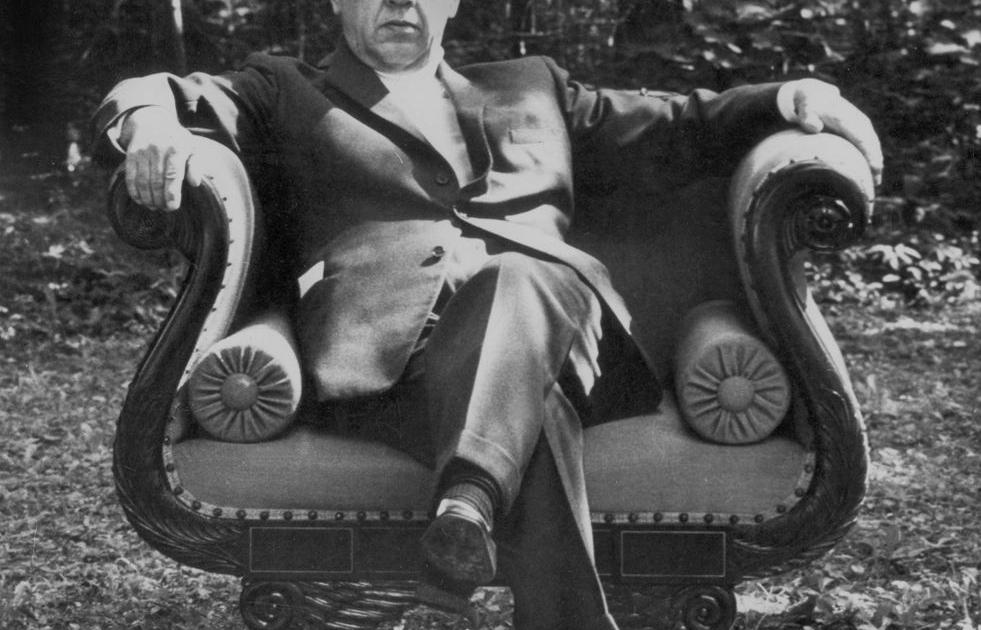Enlarge image
Elderly people are already suffering from the heat (symbolic photo)
Photo: Judith Haeusler/Image Source/Getty Images
The dust-saturated heat we're feeling right now is just a taste of our future.
Aggressive heat waves of this kind will hit us more frequently and more intensely as a result of man-made climate change - but I'm certainly not telling you anything new with that.
And quite honestly, the ignorant part of me thinks, the few hot days in Germany, you just cool off in the shade, at the swimming pool or in air-conditioned supermarkets.
However, what I fail to recognize and perhaps is not yet sufficiently on the public screen because the consequences and the danger are not perceptible or are underestimated: how deadly these heat waves are, especially for older people, but also for children, pregnant women and people who are chronically ill.
In 2019 there were around 47 percent more heat-related deaths in Germany than in the reference period from 2000 to 2005.
According to the Lancet Countdown Policy Brief for Germany, a global report examining the health impact of the climate crisis, Germany could be the third worst-hit country after China and India in terms of heat-related mortality among people over 65.
In 2018, more than 20,000 heat deaths were recorded here.
According to the RKI, there were around 490 people in Berlin that same year, and the number of heat-related deaths in Hesse is estimated at around 740.
However, since this diagnosis is not standardized - in the case of death from heart failure, death from heart failure is documented first, but heat is not recorded as the cause - there are most likely more.
A development that we have to adapt to: people will die more often due to the heat and the probability increases depending on their age, their social and economic situation and vulnerability.
We have to look at the heat and its effects not just meteorologically, but also sociologically.
Helpful here is sociologist Eric Klinenberg's first book, Heatwave: A Social Autopsy of the Chicago Disaster.
It is an insightful exploration of Chicago's unprecedented heat wave in 1995, when temperatures reached 46 degrees Celsius and over 700 people died.
The Chicago-born author's working question was simple: How could a heat wave kill so many people?
His study is what he calls a "social autopsy," in which he dissects the city as tissue and institutions as organs to determine the conditions that led to the deaths of so many people at the time.
The city administration defined it as a tragic natural disaster, but the sociologist noted that the deaths were also a socio-political organ failure.
The main causes were economic differences, isolation, poor public administration that was not prepared for this heat, but also the short-sightedness of the media with a lack of understanding of this phenomenon.
People who lived alone, in undersized apartments and/or in neighborhoods with poor public transport connections, people who were poor and/or old were most affected by this heat-related mortality.
By capturing the structural relationship between the occurrence of this catastrophic rise in temperature and the deadly impact on the population, Klinenberg made a major shift in American social science by bringing ecology and sociology together.
Because there are these systemic relationships between social inequality and environmental injustices, we will see and witness how the consequences of man-made climate change hit vulnerable groups hardest.
Globally as well as locally.
The poorest countries in the world as well as poor, isolated and above all old people in Germany.
Klinenberg's study should serve as a blueprint for us and the present to understand the social causes for the increase in climate-related lethality;
to make thinking about the effects of the climate crisis more concrete and also to expand our own egocentric consciousness.
For cognitive reasons and because human empathy also works hierarchically, what happens far away interests us less or not at all.
We understand the impact intellectually and ethically worldwide, we respond to dying koalas in Australia and are concerned when Indian populations experience high heat death rates.
But it seems far away to us.
Geographically and temporally - the global south and those who come after us.
The intergenerational empathy that might inspire us to be more circumspect is especially short-sighted here.
But the sociology of heat shows us that we don't even have to try to imagine an unborn generation, we don't even have to extend our perception to a decade or more to understand how acute the threat is, to understand that we have long been in crisis.
Not only we, but our parents will suffer more from this heat than the parents and grandparents of previous generations.
Current and future elderly people will be particularly affected, and the number of deaths will increase.
Especially since, according to research by »Zeit« and also by Human Rights Watch, the local infrastructure does not yet seem to be prepared for the deadly sweltering heat.
The majority of states have no heat action plans, let alone a heat warning system.
A socio-political organ failure, as described by Eric Klinenberg, could be repeated in Germany.







/cloudfront-eu-central-1.images.arcpublishing.com/prisa/TBUCSMISIVAOPJ6ZOCNCHG6WHQ.jpg)

